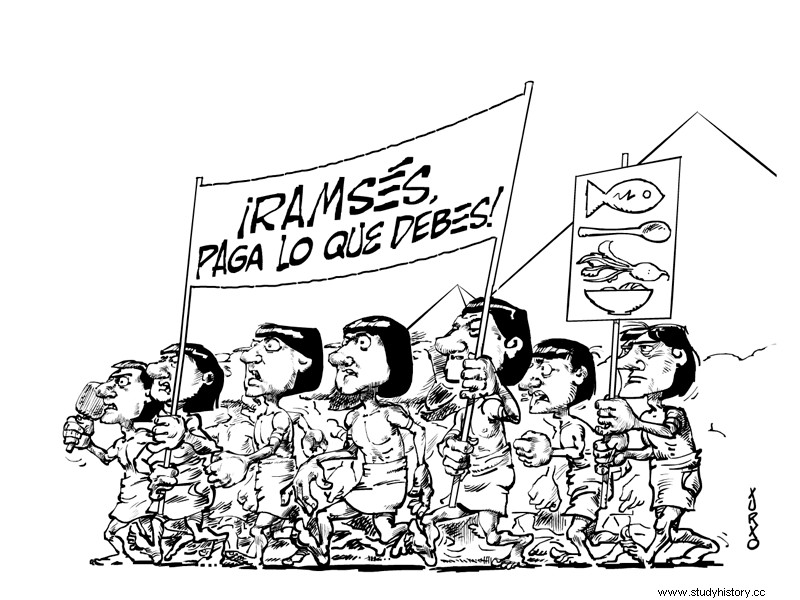We all have engraved in our retinas the image of thousands of slaves working under the whip to raise the pyramids of Egypt, because that image has more artistic license than reality. Of course, there were slaves in Egypt, most of them prisoners of war, but they were not the main workforce of Egyptian society or its funerary constructions. Work in Egypt was paid. No one will be surprised if I say that the Nile or, rather, its annual flooding and the corresponding flooding of the surrounding fields, determined the day-to-day life of the Egyptians. They built canals, dams and reservoirs to control flooding and, in this way, mitigate problems when the floods were excessive, in addition to increasing cultivated areas. During the floods the peasants could not work in their fields and the pharaohs hired them to work on the pyramids.

In addition, there are two pieces of evidence that show that they were wage laborers and not slaves:
1.- At the time of Ramesses III (1198 – 1166 BC) the first massive union action in history took place:a strike . According to a papyrus preserved in the Egyptian Museum in Turin, the strike was due to the delay in food rations that were part of the workers' salaries. The workers had not received sustenance for more than twenty days because the governor of eastern Thebes and his followers had intercepted the shipment. Four months later, the conflict was revived. The delivery of food had been delayed again, this time eighteen days, and the workers were forced to reclaim what was theirs. For this reason they interrupted the work and went to the temple of Thutmose III in Medinet Habu , where they presented their complaints, demanding that Pharaoh himself be informed and proclaiming:
[…] We have come to this place because of hunger and thirst, because of the lack of clothing, fish, vegetables. Write it to Pharaoh Do it so we can live!
Do you think that if they were slaves they would have been allowed or, rather, would have been allowed to go on strike?

2.- The workers of the pyramids were organized by groups of about 40 to 60 people who could increase at specific times due to “service needs”, each one directed by a foreman and supervising the work by a scribe. This, in addition to supervision, also had administrative tasks because he had to keep " the accounting papyri “:the progress of the work was recorded, the material that was needed and the one that was being used... and the absences of the workers with their corresponding reasons . Among the causes that we could call justified were:
Embalming a loved one.
Scorpion stings.
Brewing beer for a celebration.
Drunkenness.
Being beaten up by his wife in a marital argument…
Do you think that if they were slaves these reasons would have served to justify being absent from work? Come on, it wouldn't have occurred to any slave to say that he wasn't going to work because he had overdone the beer the night before or because his wife had beaten him up.
Source:The inventions of the ancients
Illustration:Xurxo
